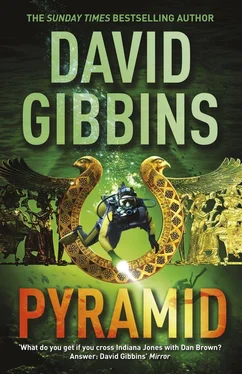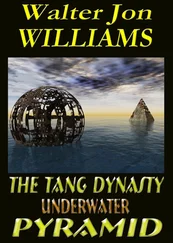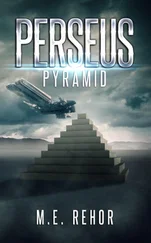Jones too had been hardened by killing, but not at the expense of his own soldierly brand of morality. As a soldier he had been a maverick, constantly pressing against authority, an enlisted man with the wayward thinking allowed only to officers. Yet not for the first time he found himself missing the army, the moral certainty of those who worked and fought for one another. Out here, in the world beyond the army, he had discovered that the only person you could rely on was yourself, but in so doing all your flaws and weaknesses became sharply defined, and the personal demons kept at bay in the army rose up to do battle for your soul and mind when there were no others to discipline and protect you.
But he had laid a smoke screen of his own, and had not told Chaillé-Long everything. In the last eight years he had learned to move in the shadow lands, to bend the truth to his purposes. He knew what had happened to Mayne; he had guessed who had ordered it. Chaillé-Long was right: Gordon had become a liability, but so too would be the one ordered to carry out the deed, a deed so shocking to public sentiment that word of it must never be allowed to leak out. And Mayne had not gone to Khartoum alone, but with his friend, his blood brother from their service together years earlier on the Red River expedition in Canada, a voyageur named Charrière. After Jones had left the crocodile pool with Kitchener, they had ridden out into the desert to join the route back from Khartoum to the Egyptian border, and Jones had been astonished one night to see a form he recognized as Charrière slip by, heading north. Jones followed him to Wadi Halfa, where he had seen Charrière go alone into Lord Wolseley’s tent. It was then that he knew what Charrière had done. Wolseley had been a patron and benefactor to the Mohawk Indians since he had first employed their services in Canada; Charrière would be beholden to him, and was someone who would disappear back to the forests of Canada as silently as he had crossed the desert from Khartoum, trusted never to tell anyone what he had done.
And there was something else that Jones had not told Chaillé-Long. It was not only the plaque from the crocodile temple that had given him the clue to this place. That night at Wadi Halfa he had risked all and crept into Charrière’s tent while he was with Wolseley. In Charrière’s bag he had found Gordon’s journal of his final days in Khartoum, something that he must have entrusted to Mayne, that Charrière must then have taken from him but clearly decided not to show to Wolseley. In the frantic few seconds in the tent, he had seen an incredible drawing inside the back cover of the journal, something that had etched itself on his mind. It was another clue to Akhenaten that Gordon himself had uncovered, a more detailed version of the plan on the plaque. It too showed the Aten sun symbol, the lines radiating off from the center with the cluster of three squares showing the Giza pyramids at one corner. Jones had hastily copied down a series of hieroglyphic cartouches that Gordon had inscribed at the bottom of the page, and then packed the diary away in the bag and fled into the night.
It was Gordon’s sketch that had been his biggest revelation and had allowed him to understand the plaque. One day several years later while working with the fellahin at Giza, he realized that the three small squares exactly mapped the relationship of the pyramids on the plateau. He was then able to use the sketch and the plaque to triangulate their position at the river from the pyramids by following one of the radiating lines from the sun symbol that he believed represented underground passageways. Finding what lay beneath became an obsession for him, not because he was drawn by a promise of ancient riches but because it was about discovering a truth that seemed to give a nobility of purpose to their enterprise in the desert, something that could exonerate Mayne, even Gordon, that would stand in stark contrast to the grim reality of failure and dishonor in their avowed reason for being there. In his fevered imagination, gripped once again by the same mania that had enveloped him at the crocodile pool, he had even felt himself on the same elevated mission as Gordon in Khartoum, as someone who had thrown away all the shackles to the outside world and his past life in order to devote himself to a higher purpose.
He was barely out of this state, in the grips of the deep melancholia that followed, when he had been begging near Shepheard’s Hotel in Cairo and had overheard guests mentioning Chaillé-Long and his law practice in Alexandria. Jones had already realized that he was going to have to enlist the help of others with money if he were ever going to get to the bottom of the mystery. Then, less than a month ago, he had experienced another astonishing revelation. He had learned hieroglyphics specifically to translate the cartouches that he had copied from Gordon’s journal. He had learned to recognize the royal cartouche of Akhenaten, one of the three in the journal, but the other two had defeated him. And then he had a blinding revelation. The symbols for the Aten, for sun and light, did not mean sunlight after all but something more down to earth and far more astonishing. This place he was searching for was not just a holy sanctum of a new religion; it was a treasure-house, yet a treasure that few Egyptologists would ever have imagined possible even in their wildest dreams.
Jones had not yet told Chaillé-Long because he could not calculate the effect that such a revelation might have on the man — and the actions he might take as a consequence. He was fearful also of word leaking out. Cairo eight years after the war was seething with men of loose purpose drawn by tales of ancient riches to be discovered; they had subverted their passion for war by an obsession with tombs and pharaohs. Until Guerin returned from his dive with word that they were in the right place, his revelation would remain a secret known to him alone, preserved only on a crumpled piece of paper concealed in his belt and in a journal that he presumed by now had disappeared with Charrière beyond knowledge, somewhere on the far side of the world.
Chaillé-Long stood up and consulted his fob watch. “He’s been down half an hour now,” he said. “He must be up soon.” Jones stood up as well and scanned the water. He realized that he was now able to see more clearly. Looking over the riverbank, he could just make out the distant triangles of the pyramids at Giza caught in the first red glow of dawn.
His heart began to pound. This was it .
The boat lurched and then trembled again, as if something were bumping along the side. “What’s that infernal knocking?” Chaillé-Long said. The boy ran over to look, and Jones followed his gaze. Something big was floating just under the surface, heaving upward and bobbing in the current, its form indiscernible beneath the muddy water. Whatever it was had caught the boat and was pulling it out into the current, forcing the captain to push bodily against the tiller to keep the vessel beam-on to the shore. Jones felt the detonator line tighten, but there was still no sign of Guerin’s light coming up in the water. The captain shouted at the boy in high-pitched Arabic, gesturing frantically with one free hand at the long wooden pole lying just inside the gunwale. The boy picked it up and lowered the end with the iron hook over the side, holding it upright and walking it along to find the obstruction. The boat veered farther into the current, its deck angled down amidships on the port side; the captain was fighting a losing battle with the tiller. He waved wildly with his free hand for Chaillé-Long and Jones to remain where they were on the starboard side to keep the port rail from going under.
Читать дальше












